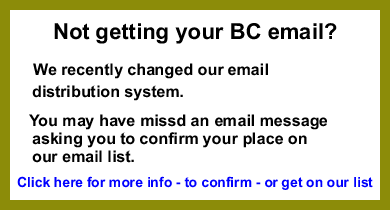
|
|||||||||||||||||||||
|
||||||||||
|
||||||||||
The current issue is always free to everyone If
you need the access available to a |
||||||||||
 |
||||||||||
 |
||||||||||
Watching Michael Moore’s “Sicko” was a sobering experience for me on a couple of levels — and not simply because of his pedantic style. The documentary spotlights the failings of the United States health care system — from bureaucracy to the high cost of care that discourages utilization. These problems aren’t limited to the United States: as health systems evolve across Africa, I’m seeing them begin to take on disturbingly familiar features. One is the serious burden of paperwork that consumes health professionals’ time and energy, often to the detriment of patient care. Health facility staff are expected to complete reams of paperwork, keeping them from patients who are literally dying to be seen. In Rwanda, medical personnel are expected to deliver patient care, prepare donor reports, manage finance, accounting and pharmacies, and make subjective decisions about patients’ ability to pay, all tasks that they are rarely equipped to do and that keep them from their real work of preventing illness and healing the sick. As in the United States, financial obstacles are the greatest deterrents to accessing health care. While emergency room care is a fallback for many Americans without insurance, most Rwandan health centers and hospitals simply don’t have emergency rooms, and in any case the facilities are so stretched that they don’t have the resources to care for uninsured patients who can’t pay. Further complicating matters, most Rwandans live several kilometers from a health center, so preventive care is often delayed due to the high opportunity cost of not spending a day in the fields. When people do get seriously ill, they delay treatment for so long that they usually end up dead at home or so sick at the health facility that they cannot be treated, much less cured.
Several years ago, the Government of Rwanda, with United States government support, piloted a system called “health mutuelle” that is essentially a community-based health insurance program. Pay $2 per year per person for mutuelle plus a co-payment — an insurmountable cost for many families — and you receive subsidized care. However, that subsidy is often not enough. I recently met a woman who was told in advance that she would need a Cesarean section at a local hospital but who simply did not have the funds to cover the 10 percent co-payment of roughly $5. She spent days canvassing friends and relatives to loan her the money, ended up with four IOUs, and had the surgery. The average co-pay in Rwanda is about 40 cents, but in a country where most make just a few dollars each month, that can be enough to keep a sick person from seeking care. You might ask: why in the world does a poor country like Rwanda insist on payments in the first place? These regressive public health approaches emanate from IMF and World Bank mandates handed down in the 1970s as a reaction to rising health care costs, as well as a group of policies for community financing promoted in 1987 and called the Bamako Initiative. In post-genocide Rwanda, the government has promoted an admirable philosophy of self-reliance in all endeavors, health payments included. The government worries that free services will foster abuse of the health care system — the American system has co-payments for largely the same reason — and believes that it’s better to have people learn to pay a bit now in the hopes of their paying more in the future.
The challenge emerges when these financial hurdles prevent early and necessary treatment. The Millennium Villages project supports a Rwandan-managed health center in Mayange where — due to extreme poverty — co-pays are not required and the health mutuelle premium is subsidized (Paul Farmer and Partners and Health have recently adopted a similar approach alluded to in Forbes last week). The results have been impressive: nearly 100 percent of community members have health mutuelle and consider health care their right. Utilization rates have increased dramatically but staff report that they have not seen a single case of abuse. Government of Rwanda is tracking the pilot closely to help determine how to balance subsidies for the poor against payments by wealthier Rwandans. It’s a challenging situation with great resonance in the United States, where the city of San Francisco just announced a plan to cover all of its citizens through a combination of free and sliding-scale payments. Hope is emerging in Rwanda and across Africa. In Uganda and Zambia, co-payments are gone, replaced by universal health care; the effect has been immediate and dramatic. Calls to do the same have emerged in Sierra Leone. While many services still require co-pays and health insurance, the Rwandan Government has made treatment for AIDS utterly free and is looking at ways to cover payments for the poor, while avoiding a culture of dependency. Josh Ruxin, PhD is an Assistant Clinical Professor of Public Health, Department of Population and Family Health, Mailman School of Public Health at Columbia University and: Director, Millennium Villages Project Rwanda, Director, Access Project. He has spent the last couple of years living in Rwanda. Click here to read other writings. Click here to contact Dr. Ruxin. |
||||||||||
| September
27, 2007 Issue 246 |
|
| Printer Friendly Version in resizeable plain text format format |
 |
 |
 |
| |
| |


































